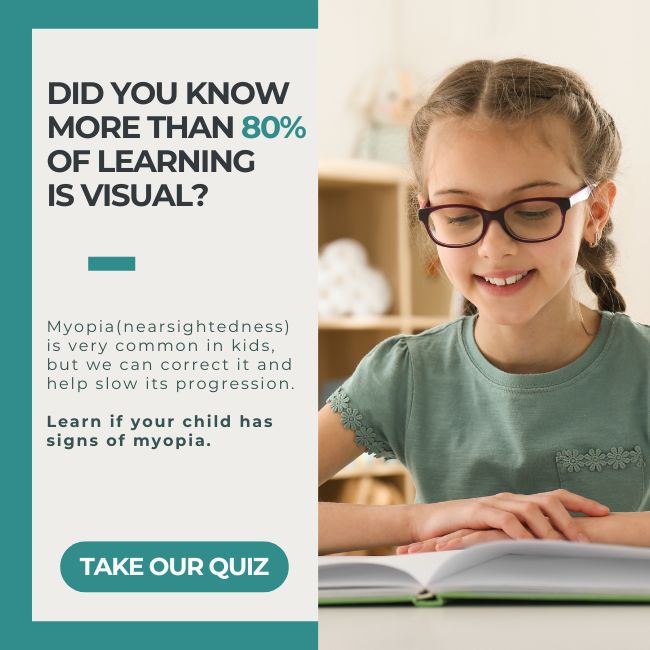For many, driving is synonymous with freedom and independence. However, for those diagnosed with macular degeneration, the road ahead can seem increasingly daunting. This progressive eye condition significantly affects central vision and can pose challenges when getting behind the wheel.
Macular degeneration doesn’t have early symptoms, so it’s critical to maintain regular eye exams so your optometrist can monitor the structure of your eyes. With the help of an eye care expert and preventative eye care measures, you can stay safer on the roads.
Understanding Macular Degeneration
Macular degeneration, also known as age-related macular degeneration (AMD), causes the loss of central vision, which is critical for tasks that require sharp focus, such as reading, writing, and driving. The disease affects the macula, a small but essential part of the retina.
Effects on Vision
As the condition progresses, individuals with macular degeneration may experience:
- Blurriness
- Distorted images
- Gradual loss of the central visual field
This deterioration can make it difficult to recognize faces, read signs, or see objects directly in front of them—all crucial abilities for safe driving.
Understanding the disease and how it impacts your vision is the first step in making informed decisions about your ability to drive and can support the safety of everyone on the road. Regular consultations with a trusted optometrist are essential to manage and monitor the condition.
Driving Regulations & Recommendations
Determining your eligibility to drive with macular degeneration is a multifaceted process, involving both legal requirements and personal assessment.
Legal Requirements
The regulations concerning drivers with macular degeneration vary by country, province, or state. The province or state agency sets the standards for visual acuity and field of vision that drivers must meet.
These standards aim to confirm that drivers can see well enough to operate a vehicle safely, based on the available evidence and with consideration for their condition.
Optometrists play a critical role in assessing your vision and can advise you on how your macular degeneration may affect your ability to meet these criteria. It’s important to stay informed about the legal requirements for driving with visual impairments and comply with any license restrictions.
Safe Driving Practices
Regardless of legal requirements, drivers with macular degeneration can adopt practices to mitigate risks. These include:
- Scheduling regular eye check-ups to monitor the disease’s progression
- Using prescribed optical aids, such as glasses or magnifiers
- Driving only during daylight hours or in optimal lighting conditions
- Minimizing distractions inside the vehicle
- Enrolling in specialized driver training courses for visually impaired individuals
Understanding the limitations imposed by macular degeneration can help you develop a tailored approach to safe driving that works for you.
Adaptive Tools & Technologies
Innovations in adaptive tools and technologies offer new possibilities for visually impaired individuals to continue driving safely and, in some cases, to drive independently.
Aids for Visual Impairment
There are various aids designed to assist individuals with macular degeneration on the road:
- Bioptic telescopes: These small telescopes can enhance your vision when combined with regular eyeglasses. They allow you to see distant objects, such as road signs or traffic signals, more clearly.
- Prism glasses: These glasses contain prisms that can shift images to the undamaged part of your retina, providing a more comprehensive field of view.
- Bright-light glasses or sunglasses: Sunglasses can reduce glare and offer better contrast when driving in different light conditions.
Consult with an eye doctor who’s well-versed in low-vision conditions to determine which aids might be appropriate for your level of macular degeneration. Then, be sure to schedule a fitting so they provide the right support.
Driver Assistance Technologies
Modern vehicles are equipped with an array of advanced driver assistance systems (ADAS) that are becoming increasingly effective for individuals with vision impairments. Systems such as lane departure alerts, automatic braking, and adaptive cruise control can provide support, especially when dealing with reduced peripheral vision.
While these technologies can be game-changers for many, they do not replace the need for regular eye exams and safe driving practices. They serve as additional layers of protection, enhancing awareness and response times on the road.
Preventative Eye Care in South Surrey
Macular degeneration presents significant challenges, particularly for tasks like driving that are so integral to our daily lives. However, with a combination of informed decision-making, compliance with regulations, and the use of adaptive tools and technologies, many individuals can continue to drive safely and maintain their sense of freedom and independence.
A macular degeneration diagnosis is not the end of the road for your driving days. It’s a new chapter you can write with knowledge, preparation, and the support of your optometrist at Insight Eyecare.
Schedule a visit for your next eye exam and continue doing the things you love, such as driving. Doing so will ensure you maintain the highest standards of safety and well-being for yourself and those with whom you share the road.







